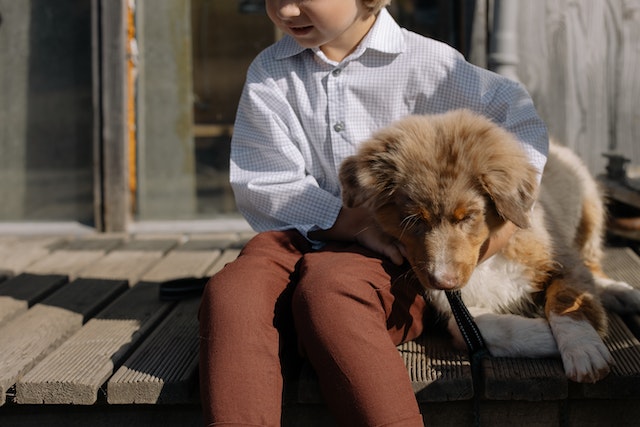Are German Shepherds Good With Kids?

When considering a family pet, many prospective dog owners want to know about the temperament and suitability of different breeds, especially when children are involved. One popular breed that often comes up in this conversation is the German Shepherd. Known for their loyalty, intelligence, and versatility, German Shepherds have a reputation that precedes them. But, are they good with kids? This article explores the characteristics of German Shepherds, their compatibility with children, and tips for ensuring a harmonious relationship between pets and kids.
Quick Info Table: German Shepherds and Kids
| Characteristic | Description |
|---|---|
| Temperament | Loyal, protective, intelligent |
| Size | Medium to large (50-90 lbs) |
| Energy Level | High (requires regular exercise) |
| Trainability | Highly trainable and obedient |
| Interaction with Kids | Generally good, but requires supervision |
| Best Age for Kids | 5 years and older recommended |
Understanding German Shepherds
General Temperament
German Shepherds are known for their loyalty and protective nature. They are often employed in various roles, including police and military work, search and rescue, and as service animals. This breed is intelligent and eager to please, making them highly trainable. However, their strong instincts and energy levels mean they thrive in environments where they can receive ample mental and physical stimulation.
Energy Levels and Exercise Needs
German Shepherds are high-energy dogs that require regular exercise. Daily walks, playtime, and mental challenges are essential for keeping them happy and healthy. This energy can translate into a playful demeanor with children, but it also necessitates supervision, especially with younger kids who may not fully understand how to interact with an energetic dog.
Are German Shepherds Good with Kids?
Compatibility with Children
Generally, German Shepherds are known to be good with children, especially when they are raised together. Their instinct to protect can make them excellent guardians for families. Many German Shepherds exhibit patience and affection toward kids, often forming strong bonds with them. However, appropriate introductions and supervision are key to ensuring a positive relationship.
Age Considerations
While German Shepherds can get along well with children, it is often recommended that they be introduced to kids who are at least 5 years old. At this age, children are typically better at understanding how to interact with dogs and can recognize when a dog may be uncomfortable. Younger children might unintentionally provoke a dog’s protective instincts or become overly excited, potentially leading to misunderstandings.
Training and Socialization
Importance of Early Training
Proper training is crucial for any dog, but especially for a breed as intelligent and powerful as the German Shepherd. Early socialization helps them learn how to interact positively with children and other pets. This can include exposing them to various environments, experiences, and people during their critical development stages.
- Socialization: Introduce your German Shepherd to various situations, including interactions with children, to promote positive behavior.
- Basic Commands: Teach essential commands such as "sit," "stay," and "leave it" to enhance communication and control.
- Positive Reinforcement: Use treats and praise to encourage good behavior, creating a positive association with kids.
Ongoing Training
Training should not stop once the dog reaches adulthood. Continuous reinforcement of commands and appropriate behavior around children helps maintain a stable environment. Regular training sessions can also serve as bonding opportunities between the dog and the children, fostering a relationship built on trust and respect.
Supervision and Interaction
Always Supervise
Even the most well-behaved German Shepherds should be supervised when interacting with children. This is particularly important for younger kids who may not yet understand how to treat dogs kindly. Supervision helps prevent accidents and allows parents to intervene if the dog becomes overwhelmed or if the child engages in rough play.
Positive Interaction
Encouraging positive interactions between German Shepherds and children can help build a strong bond. Teach children to approach the dog calmly and to respect their space. Activities such as playing fetch or teaching the dog tricks can create a fun and engaging environment for both the dog and the kids.
Potential Concerns
Aggression and Protective Instincts
While German Shepherds are typically good with children, their protective instincts can sometimes lead to aggressive behavior if they feel threatened or if their territory is encroached upon. This is why early socialization and training are crucial. Teaching your German Shepherd to be calm and relaxed around children will help mitigate any potential issues.
Individual Temperament
Every dog is unique, and individual temperament can vary widely within the breed. Some German Shepherds may naturally be more patient and gentle, while others may be more dominant or assertive. It’s essential to assess each dog’s personality and behavior when introducing them to children.
Conclusion
In summary, German Shepherds can make excellent companions for families with children, provided that proper training, supervision, and socialization are prioritized. Their loyalty and protective nature can make them both loving pets and vigilant guardians. However, it is crucial to introduce them to children in a controlled manner and to foster positive interactions from an early age.
When considering adding a German Shepherd to your family, reflect on the commitment involved in training and socialization. With dedication and care, these intelligent dogs can thrive in family environments, forming lasting bonds with children and enriching their lives. As with any pet, the key to success lies in understanding their needs and providing a safe, loving home.



Comments ()